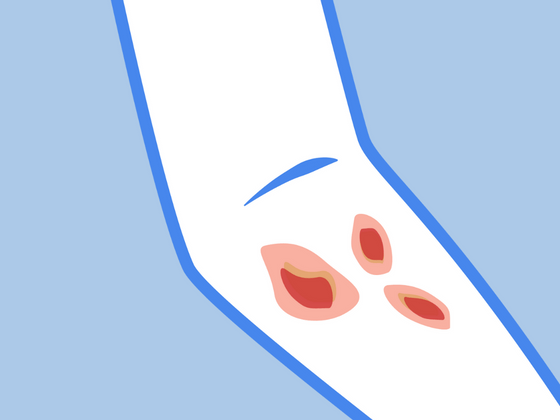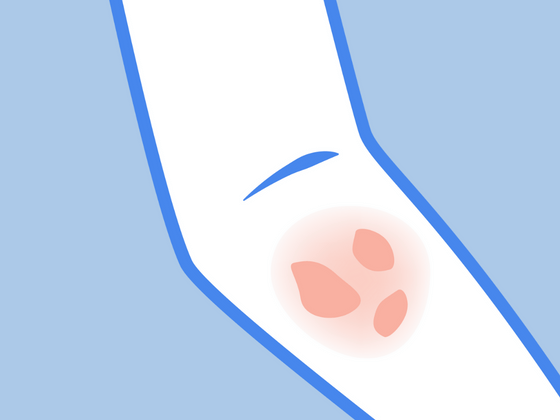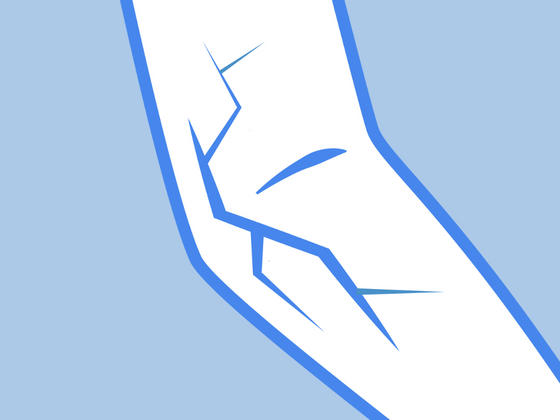As a parent or guardian, the last thing you want to see is your baby in any sort of pain. If you notice your newborn has a developed crusty red patches of skin, it could be eczema. Not to worry – this is actually quite common in a baby’s first few months of life. The itchy skin condition affects up to 25% of children with up to 60% developing it during their first year of life.
In this blog post, we discuss neonatal dermatitis and explore some common questions, including:
- What causes neonatal eczema?
- What are the symptoms of eczema in newborns?
- How can you naturally soothe your baby’s delicate skin?
Read on to learn more about neonatal eczema and how you can nourish and nurture your little one's sensitive skin with eczema cream for babies and natural remedies.
What is neonatal eczema?
As we mentioned, it’s common for babies to develop crusty or flaky patches on their skin during their first few months. Fortunately, the condition is treatable. Many infants will actually outgrow their eczema by the time they start school but for some, it remains a life-life condition. While eczema is neither dangerous or contagious, it can make your baby’s skin itchy, inflamed, and irritated.
Causes of neonatal dermatitis
There is no single cause of neonatal atopic dermatitis. The condition can develop due to a variety of factors, including genetics and things in the environment. Because the atopic gene is heredity, a baby is more likely to develop eczema if one or both parents has it. A baby may also develop eczema due to a damaged skin barrier which has trouble retaining moisture or by contact with irritants or allergens, often found in skincare products.
Symptoms of eczema in newborns
Eczema appears as patches of dry, red, and flaky skin. In darker-skinned babies, the rash may look brownish, grayish, or purplish in color. These rough patches of skin can appear anywhere on the body but typically affect the chin, cheeks, and joints of arms or legs. It’s easy to confuse neonatal eczema with cradle cap or baby acne because of their similar appearance.
Things that can make your baby’s skin worse
Dry Skin
Dry skin can cause your baby’s skin to be extra itchy. Dry skin is more likely to occur during the cold winter months when the air is drier.
Heat and Sweat
If your baby is overheated, chafing can exacerbate their skin.
Allergens
Mlk, egg, peanut, soya, wheat, tree nuts, sesame, and shellfish are the common groups of allergies. Babies with eczema have a slightly higher risk of an allergic reaction. If you suspect your child has a food allergy, speak to your doctor to discuss their diet.
Irritants
Fabrics such as wool or polyester, ingredients in skincare products and contact with chemicals in soaps can all trigger your baby's eczema. Consider using gentle eczema soap instead.
Treating your baby’s skin
Scratch Mittens Top for Kids
Help your little one sleep the night away with this comfortable cotton top complete with scratch mittens. The closed scratch mittens with a protective double layer of fabric help prevent your baby from scratching in their sleep.
One-Piece Footie with Closed Mittens for Kids - 100% Organic Cotton
This super soft one-piece footie provides the ultimate protection to your baby’s delicate skin. It’s perfect for wearing either during the day or at night to help the skin heal.
Satya Eczema Cream Glide Stick
Babies and adults alike can benefit from this rich, nutrient oil based balm or natural beef tallow cream. It’s made with anti-inflammatory colloidal oats which are medically proven to reduce eczema symptoms. Convenient to carry around, simply throw it into the diaper bag for relief on the go.
Baby & Adult Soother
This itchy eczema treatment was made by an acupuncturist to treat his daughter's eczema. Use it to calm dry and itchy rashes or to find relief for eczema, keratosis pilaris, and rosacea-like redness.
Soothe your baby’s skin today
If your newborn baby has eczema on their body, give these natural and nourishing eczema treatments a try so that your little one can enjoy soft and smooth skin today.








